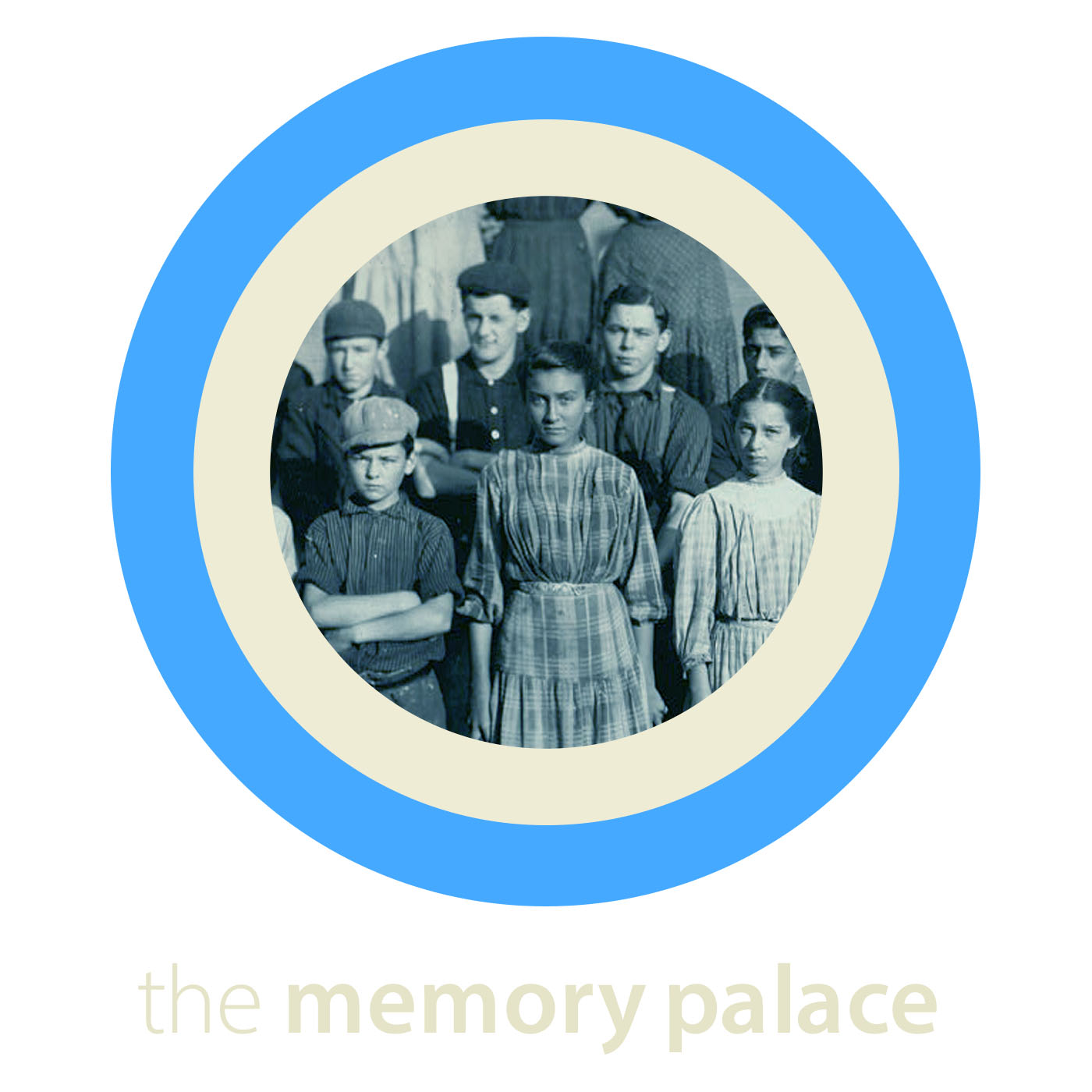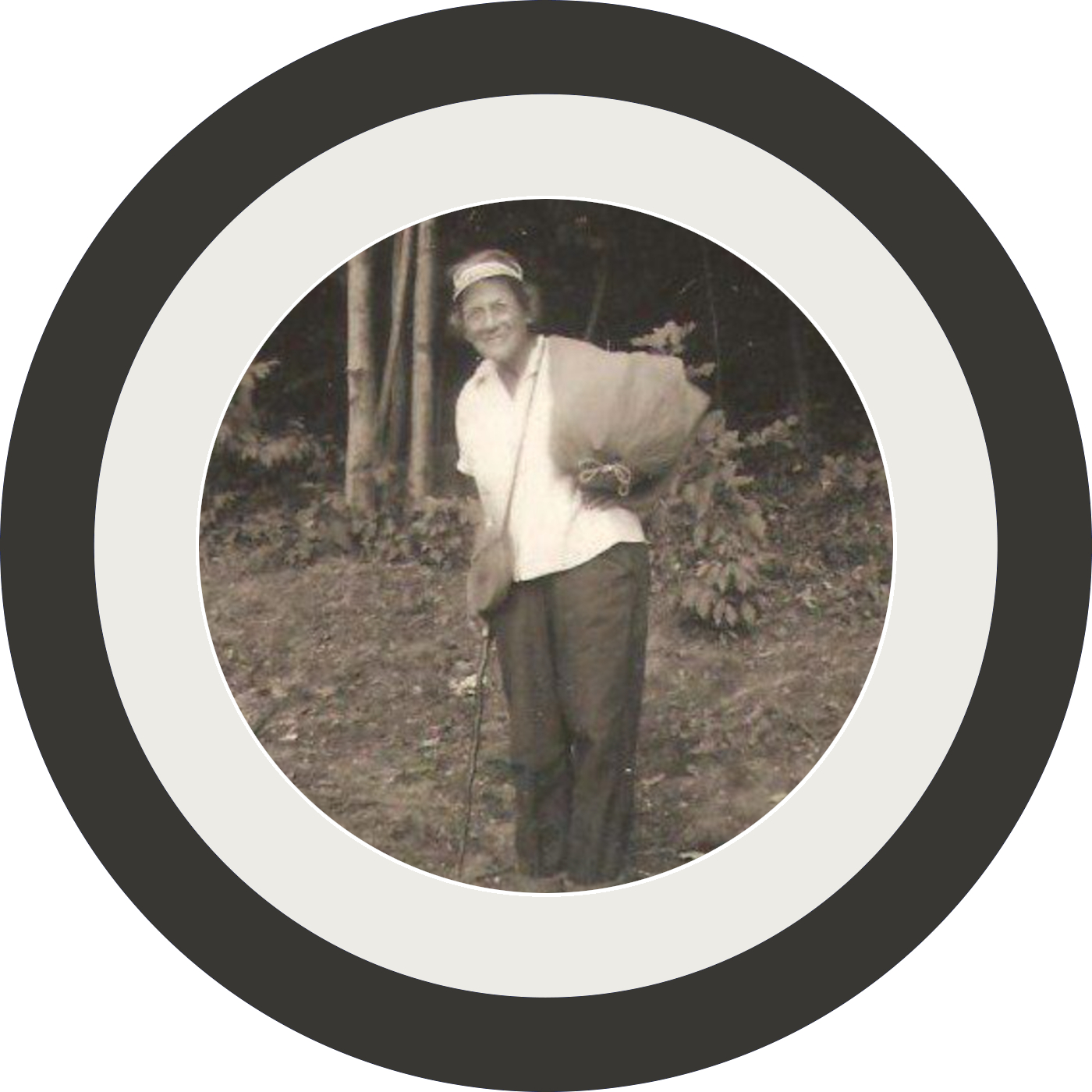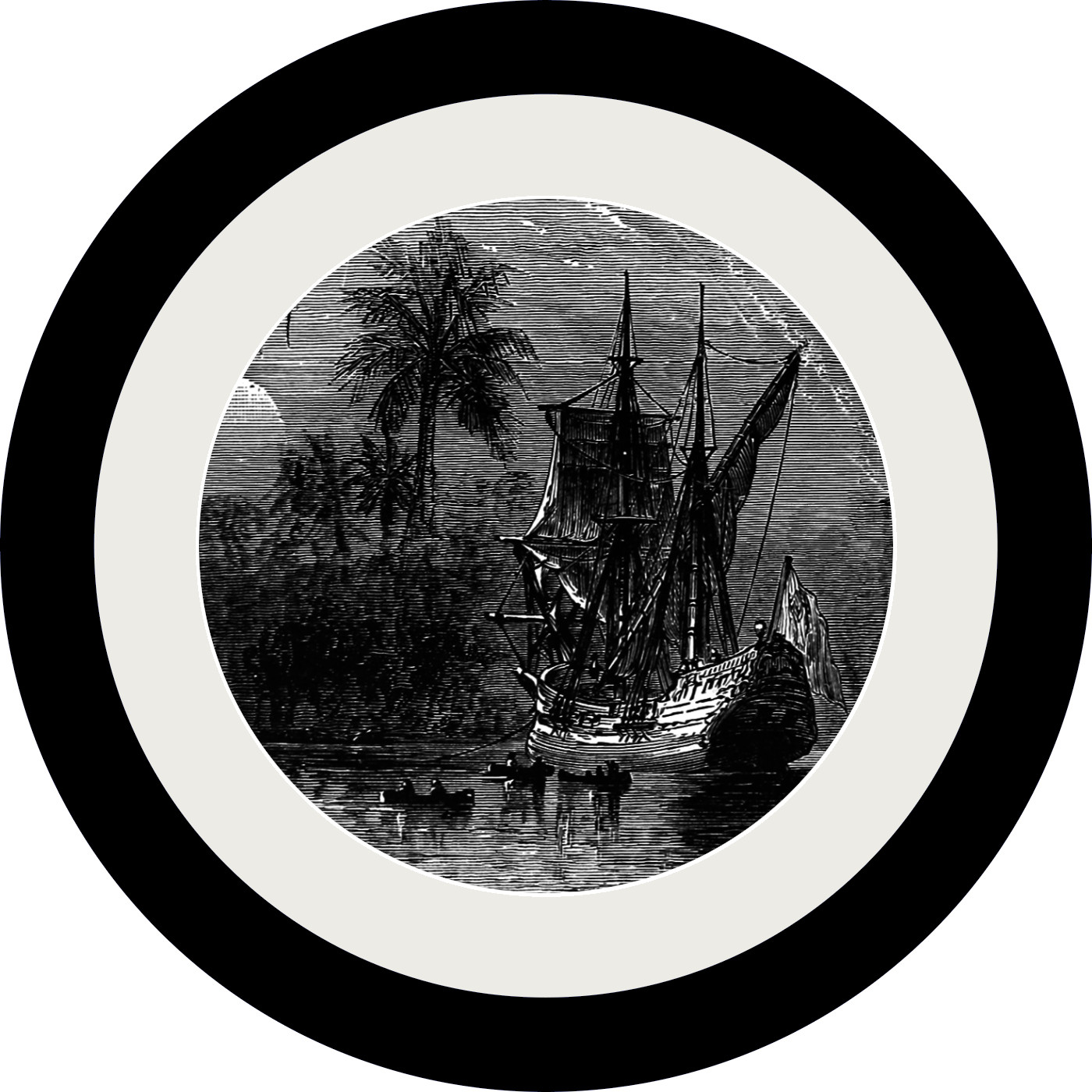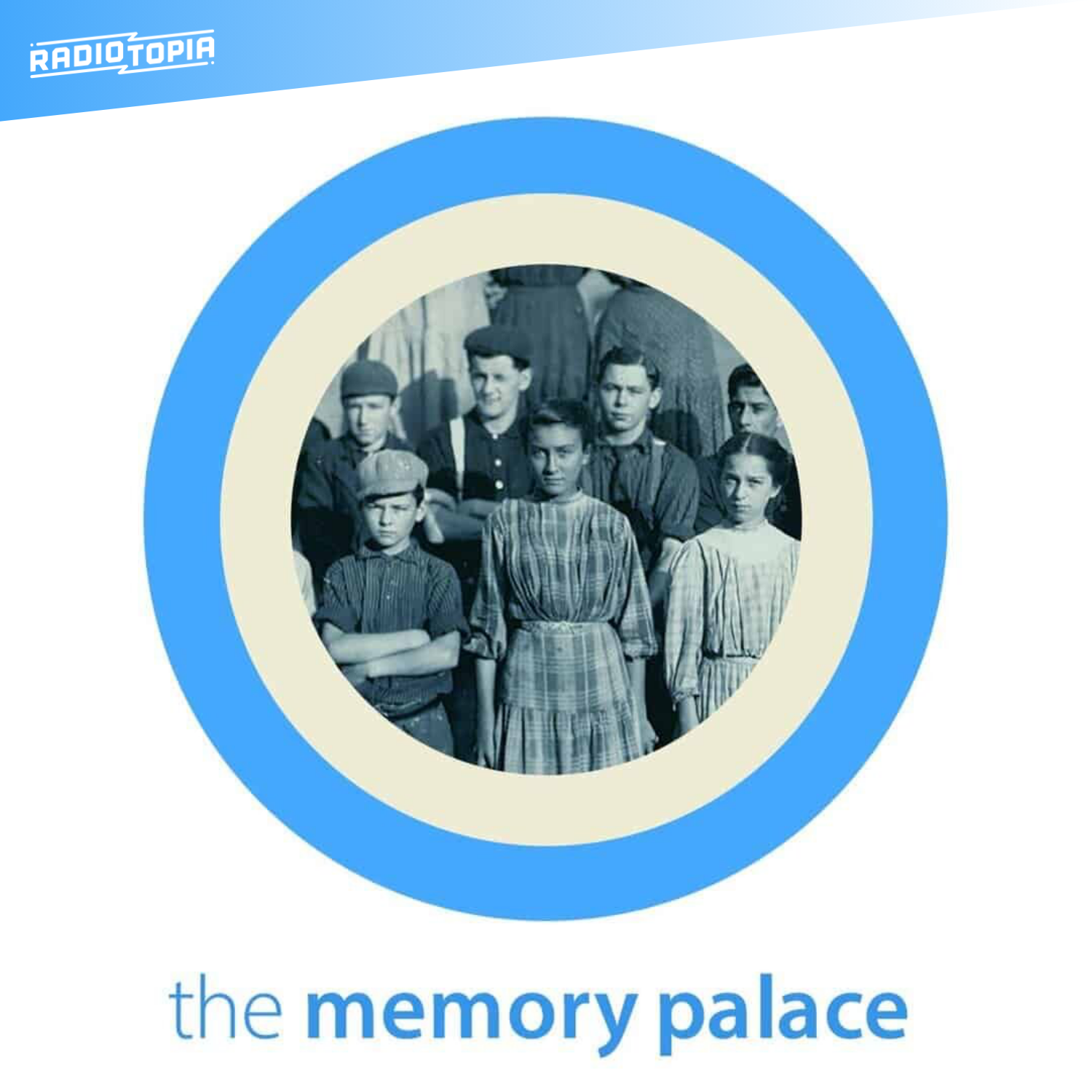Episode 90: A White Horse
The Memory Palace is a proud member of Radiotopia from PRX. Radiotopia is a collective of independently owned and operated podcasts that’s a part of PRX, a not-for-profit public media company. If you’d like to directly support this show and independent media, you can make a donation at Radiotopia.fm/donate.
This episode was originally released in 2016 in the days after the shooting at the Pulse nightclub in Orlando. It is re-released every year on the anniversary of the incident.
A note on notes: We’d much rather you just went into each episode of The Memory Palace cold. And just let the story take you where it well. So, we don’t suggest looking into the show notes first.
Notes and Reading:
* Most of the specific history of the White Horse was learned from "Sanctuary: the Inside Story of the Nation's Second Oldest Gay Bar" by David Olson, reprinted in its entirety on the White Horse's website.
* "Gayola: Police Professionalization and the Politics of San Francisco's Gay Bars, 1950-1968," by Christopher Agee.
* June Thomas' series on the past, present, and future of the gay bar from Slate a few years back.
* Various articles written on the occasion of the White Horse's 80th anniversary, including this one from SFGATE.Com
* Michael Bronski's A Queer History of the United States.
* Radically Gay, a collection of Harry Hay's writing.
* Incidentally, I watched this interview with Harry Hay from 1996 about gay life in SF in the 30's multiple times because it's amazing.
Music
* We start with Water in Your Hands by Tommy Guerrero.
* Hit Anne Muller's Walzer fur Robert a couple of times.
* Gaussian Curve does Talk to the Church.
* We get a loop of Updraught from Zoe Keating.
* We finish on Transient Life in Twilight by James Blackshaw
Learn about your ad choices: dovetail.prx.org/ad-choices
Press play and read along
Transcript
Speaker 1 This episode of Memory Palace is brought to you by Progressive Insurance. Do you ever find yourself playing the budgeting game?
Speaker 1 Well, with the Name Your Price tool from Progressive, you can find options that fit your budget and potentially lower your bills. Try it at Progressive.com.
Speaker 1 Progressive Casualty Insurance Company and Affiliates, Price and Coverage Match Limited by State Law. Not available in all states.
Speaker 1 This episode of the Memory Palace is brought to you by our friends at Quince.
Speaker 1 Cooler temperatures are on the way and as always, Quince is where I am turning for fall staples that actually last from cashmere to denim to boots.
Speaker 1
The quality holds up and the price still blows me away. And the holding up to me, that is really the thing.
Last year I got one of their super soft 100% Mongolian cashmere sweaters.
Speaker 1
This beautiful and classic brown. 60 bucks, though it looked like a proverbial million.
And I know that that sweater, it's just waiting for me. Waiting for those cooler temperatures.
Speaker 1
And when I I take it out of the drawer, it is still going to look great. It is still going to feel great.
It's still going to be in fashion because Quince specializes in true, classic staples.
Speaker 1 If you want denim that's durable, leather jackets with that clean, classic look, you don't want the crazy markups that other retailers are trying to foist on you.
Speaker 1
And you want to know that that classic look, it's going to be in fashion for a long time to come. What you're going to want to wear forever.
It's still going to be wearable for a long time to come.
Speaker 1
Look no further than Quince. Keep it classic and cool this fall with long-lasting staples from Quince.
Go to quince.com slash memory for free shipping on your order and 365 day returns.
Speaker 1
That's quince.com slash memory. Free shipping in 365 day returns.
Quince.com slash memory.
Speaker 1 This episode of The Memory Palace was originally written after hearing word of the massacre at the Pulse Nightclub in Orlando, Florida.
Speaker 1 in which 49 people were killed, an additional 53 people were wounded,
Speaker 1 and so many more were traumatized and had their lives permanently changed. This episode has been re-released every year on June 12th,
Speaker 1 the anniversary since 2016.
Speaker 1 This is the Memory Palace. I'm Nate DeMayo.
Speaker 1 The White Horse Inn on Telegraph in Oakland opened in 1933 or thereabouts. No one's been able to nail down the date.
Speaker 1 Historians have tried, as have some of its various owners, it seems, over the years.
Speaker 1 But if you're not an academic, or if you don't have a personal financial stake in solidifying its claim as the oldest gay bar in the United States to operate continuously in one location, it doesn't really matter when the White Horse first opened its doors.
Speaker 1 Just that it was soon enough.
Speaker 1 For a man to walk in on just the right night in 1936, or 46 or 54, and see the most beautiful man he'd ever seen in his life
Speaker 1 and just be done for.
Speaker 1 Soon enough for another man who'd heard of this place, heard of places like it, whispered about or mocked by the fellas in the assembly line or in the office or in his usual joint across town, heard the cracks about pansies and perverts and queers
Speaker 1 and feared what they might mean.
Speaker 1 feared why the words seemed to cut right through,
Speaker 1 sit strange in his belly, and tighten his throat. But who fought through that fear to make his way there, to the white horse?
Speaker 1 Who may have circled the block all butterflies before working up the courage to part?
Speaker 1 Who may have walked right past it rather than be seen walking in by some stranger? Or maybe he pulled his collar up and tipped his fedora low and pushed through the door as fast as he could.
Speaker 1 And who may have learned that night in that bar, where men talked to men by the fireplace in the back, where women flirted with women in the light of the jukebox, men held hands by the pool table like it was nothing,
Speaker 1 like it wasn't everything,
Speaker 1 knew that night for sure that this was the place he belonged, that this might be the only place he belonged.
Speaker 1 Like it was for other women and men, those who were identified correctly as such at birth, and those who weren't. People who needed their lives to change.
Speaker 1 To make sense. To be less lonely, to be less scary, to be more fun,
Speaker 1 to be saved.
Speaker 1 In the 40s and 50s, and later, men and women, friends from the neighborhood at the bus or church, friends who knew the truth about each other, would walk arm in arm up Telegraph Road to the White Horse, would play at being people they were not.
Speaker 1 and then walk through the door, into that windowless room, and become who they were.
Speaker 1 They'd go their separate ways, he to a boyfriend and she to a girlfriend, and they'd spend a few hours in a place where so much of what they'd been taught all their lives about what life was supposed to be, about who they had to be to be happy or responsible or good or saved, just fell apart.
Speaker 1 Just put the light of the whole thing.
Speaker 1 The laws of the universe themselves.
Speaker 1 Just torn up and tossed like confetti, to swirl in the bar light and flit in the laughter and the dance songs, alight on the eyelashes of some pretty man, and float on the surface of a martini glass.
Speaker 1 And then they'd say goodnight to their boyfriend and girlfriend, to the people there who understood, who helped them understand. And they'd link arms and go back out into the world.
Speaker 1 Have no illusions about the world.
Speaker 1 The world did not want that man and that woman to be who they were.
Speaker 1
Gay sex was a felony. Cross-dressing was a crime.
People risked imprisonment, forced sterilization, institutionalization, lobotomization
Speaker 1 for acting on who they were.
Speaker 1 If the cops, armed with laws that let them raid bars, if they suspected women were dancing with women, or men were holding hands, or speaking in high-pitched voices in some cities.
Speaker 1 If the cops came and threw you into the paddy wagon, if not threw you up against a wall, your name would wind up in the paper along with your address.
Speaker 1 You could be fired, kicked out of your apartment, lose your car loan, get beat up, or worse, by people in your own home, or by people who now knew where your home was.
Speaker 1
The laws would change. Attitudes would change.
Sometimes for the better and sometimes not.
Speaker 1 The war seemed to change everything for a while, especially there in the Bay Area.
Speaker 1 All these soldiers and sailors and nurses floating in, away from home for the first time, discovering who they were for the first time, discovering whole worlds in windowless rooms like the White Horse.
Speaker 1 In the 60s, a straight couple bought the bar, and they were so worried about raids, it seems, and some speculate so skeeved out by their own clientele, that they instated a strict no-touching policy.
Speaker 1
No more slow dances. No kissing.
No nothing. It was like that for years.
But still people came to the White Horse. Because it was their place.
Speaker 1
But then the late 60s came, and the hippies came and the radicals came. Berkeley was just down the road.
The Black Panthers were on patrol right there in Oakland.
Speaker 1 And gay men and lesbians and transgender people started staking more radical claims, started living more radical lives. And the White Horse embraced gay liberation.
Speaker 1 And by then it was just one of the many gay bars in the area, where people could find each other, could find out who they were and who they wanted to be, where they figured out what was possible to ask from this life, where they asked for it together,
Speaker 1 as they'd done in the White Horse Inn since 1933 or thereabouts.
Speaker 1 The White Horse Inn was opened the night in 1966 when transgender women fought back against police harassment in Compton's cafeteria across the bay in San Francisco and rioted.
Speaker 1 It was still open two years later when the Stonewall Inn was raided across the country and people protested for three days. It never really stopped.
Speaker 1 It was open on the night in 1973 when an arsonist set fire to a gay bar in New Orleans, locked the door, and killed 32 people. The White Horse was there for people who needed to mourn.
Speaker 1 It was open for people who wanted to celebrate in 1962, when Illinois became the first state to decriminalize homosexuality.
Speaker 1 And 13 years later, when California joined it, and 28 years later, when the Supreme Court forced 14 states to do the same.
Speaker 1 It was open in 1977, when San Francisco elected Harvey Milk to its board of city supervisors, and in 1978 when he was assassinated.
Speaker 1 It was open in 1979 when 75,000 people marched in Washington for their civil rights.
Speaker 1 And it was open all throughout the 1980s, when its customers started dying, when its employees started dying. In one year alone, eight bartenders,
Speaker 1 eight, died of age-related illnesses.
Speaker 1 And the White Horse Inn stayed open.
Speaker 1 As it has been, again and again, when men and women, and boys and girls, transgendered people, were murdered for who they were.
Speaker 1 So many since 1933 or thereabouts. Mourned by what people now call the LGBTQ community.
Speaker 1 A community built, year by year, night by night, in windowless rooms like the White Horse.
Speaker 1 It was open when Vermont passed its civil unions law, when Massachusetts passed its marriage law, when San Francisco's mayor issued marriage licenses, and when the California Supreme Court annulled those unions, annulled the marriage of the manager of the White Horse, too.
Speaker 1 It was open when the California voters rejected gay marriage. And it was open for dancing when the Supreme Court threw that vote out.
Speaker 1 It was open on a Saturday in June
Speaker 1 when someone killed 49 people in Orlando, Florida, in a place like the White Horse, where people came to be who they were. And it was open on Sunday,
Speaker 1 and it's open tonight,
Speaker 1 and it'll be open tomorrow.
Speaker 1 This episode of The Memory Palace was written and produced by me, Nate DeMayo, in June of 2016 with engineering assistance from Kathy Tu and research assistants from Andrea Milne.
Speaker 1 The show's current research assistant is Eliza McGraw. This episode is a proud member of Radiotopia, a network of independent podcasts from PRX, a not-for-profit public media company.
Speaker 1 If you ever want to drop me a line, you can do so at nate at theememorypalace.us.
Speaker 1 You can follow me on Twitter and Facebook at thememory palace.
Speaker 1 If you would like to donate to help keep the show and the network that makes it possible strong, you should go to radiotopia.fm and do so.
Speaker 1 The White Horse Survived the Pandemic.
Speaker 1 It will be open tonight and tomorrow.
Speaker 1 Radiotopia
Speaker 1 from PRX





